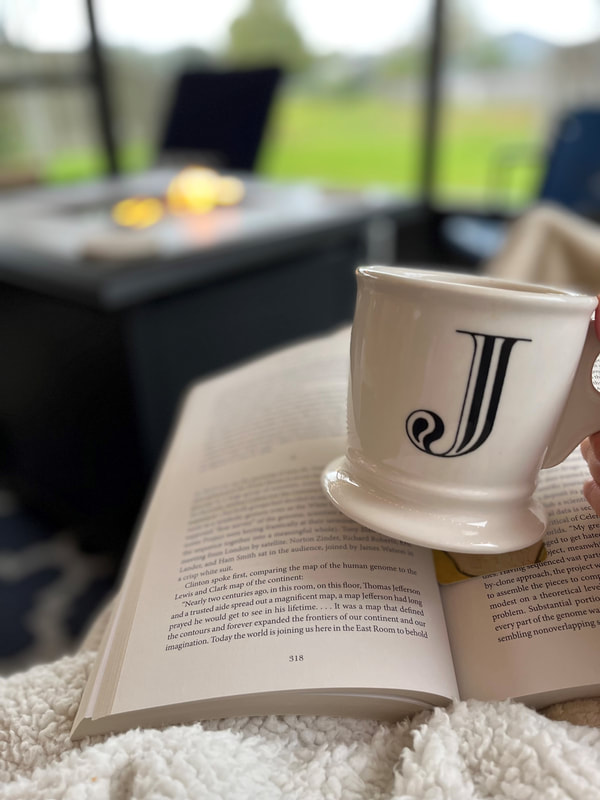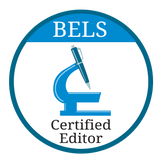If you want to be a writer, you must do two things above all others: read a lot and write a lot. --Stephen King Each year, I choose a theme for my reading. In 2022, my theme was medicine, fitting for my job as a freelance medical writer and editor. I read 15 books, both fiction and nonfiction, with a medical theme. Here are my top 5. Medical Nonfiction My 2 favorites in the nonfiction genre were The Code Breaker: Jennifer Doudna, Gene Editing, and the Future of the Human Race by Walter Isaacson and The Gene: An Intimate History by Siddhartha Mukherjee. These 2 nonfiction titles make a great pairing. The Gene is a history of the unit of hereditary we call a gene, and the story begins before anything called a gene has been identified. As more and more is learned about the basis of inheritance, more and more ethical issues arise, and the book is as much about these ethical questions as it is about the science of discovery. As The Gene ends, Crispr is just being discovered, making The Code Breaker a logical next read (although in truth, I read these in the reverse order). The Code Breaker also begins with the discovery of DNA and how Rosalind Franklin influenced Jennifer Doudna. It is a more personal story. Medical Fiction I ended up with a subtheme within my theme: the history of genetics. Her Hidden Genius by Marie Benedict is historical fiction about Rosalind Franklin. The best historical fiction brings a time period and a person to life, and Marie Benedict has created a niche of shining a light on overlooked women in history. Today Rosalind Franklin is recognized for her primary role in determining the helical structure of DNA, but in her lifetime, Watson and Crick got all the credit. Her Hidden Genius may be my favorite of Marie Benedict’s novels. One of the stories that stayed with me all year is The Nurse’s Secret by Amanda Skenandore. This story, set in New York in the 1880s, is about Una, a pickpocket who, wanted by the police for a murder she didn’t commit, hides out by signing up for America’s first nursing school at Bellevue Hospital. I had not previously read any stories about early nursing schools, and I've gone on to recommend this one often. If you can read a pandemic story, Kimmery Martin wrote Doctors and Friends before COVID-19, although it was released in 2021. The story follows three medical school friends, one an ob-gyn, one an ER physician, and one an infectious disease doctor, who reunite for a vacation in Spain. This was a fast-paced story about a virus that felt even scarier because of the reality of SARS-CoV-2. Kimmery Martin is an ER physician, and I love the medical details in her fiction. Choosing a theme for your reading is a great way to read more, and it’s a fun way to find backlist titles you may have missed or to finally read those books you’ve been meaning to read forever. These reads and more are collected on my Medical-Fiction-and-Nonfiction bookshelf in Goodreads. What have I missed? Jennifer Holmes Medical Editing Services, LLC Communicating science well—for healthy people and a healthy planet Is the title of your scientific journal article the first thing you write or the last? The title is the first thing readers see, and it may be what leads them to download your full article. Before you submit your paper to a journal for review, take another look at the title and consider the following best practices. Keep It Short Some studies of paper citations looked at the length of article titles. The findings suggest that articles with shorter titles are cited more. The optimal title length seems to be between 10 and 15 words (or 31 to 40 characters). Also consider the guidelines of the journal to which you are submitting. The journal may have a very specific word or character limit. Use Key Words Here’s a great tip from the TAA (Textbook & Academic Authors Association) Blog: if you were to do a database search for your article, what key words would you type in? Your article title should include those key words. This will help interested readers find your research. Other questions to ask yourself when writing drafts of the title:
It’s important to include the name of the species or model in the title. Including this important detail may help to improve science communication. A study by Triunfol and Gouveia in PLoS Biology reported that when an article’s title omitted the species in which the study was done, headlines of news stories about the article tended to omit this vital piece of information as well. Also, include details of the research design in the title. Some journals will specify in their guidelines that the title should include mention of the research design. This detail could be included as a subtitle. Avoid Questions and Declarative Sentences Although a question may be appropriate for an editorial or commentary, writing the title as a question is generally frowned upon for research manuscripts. One study suggested that articles with question marks or exclamation points in the title are cited less frequently. Concerning declarative sentences, both the AMA Manual of Style and the guidelines of several journals discourage authors from writing titles as declarative sentences (eg, “Fibromyalgia Is Common in an Obesity Clinic”). The reasoning given in the AMA Manual is that declarative sentences tend to overemphasize a conclusion. (An alternate for the title above is “Prevalence of Fibromyalgia in Patients With Obesity.”) Other Best Practices Don’t use abbreviations in article titles. Following the same logic as in the recommendation to use key words, if you use abbreviations and jargon specific to your field, the online searches of people from other fields may not uncover your article. Do take one last look to ensure that the title is grammatical, spelled correctly, and punctuated correctly. If you’re struggling with the title of your paper, let me know when you send your paper to me for editing. I’ll be happy to suggest a few titles for your consideration. Sources |
AuthorJennifer Holmes Archives
January 2023
|









